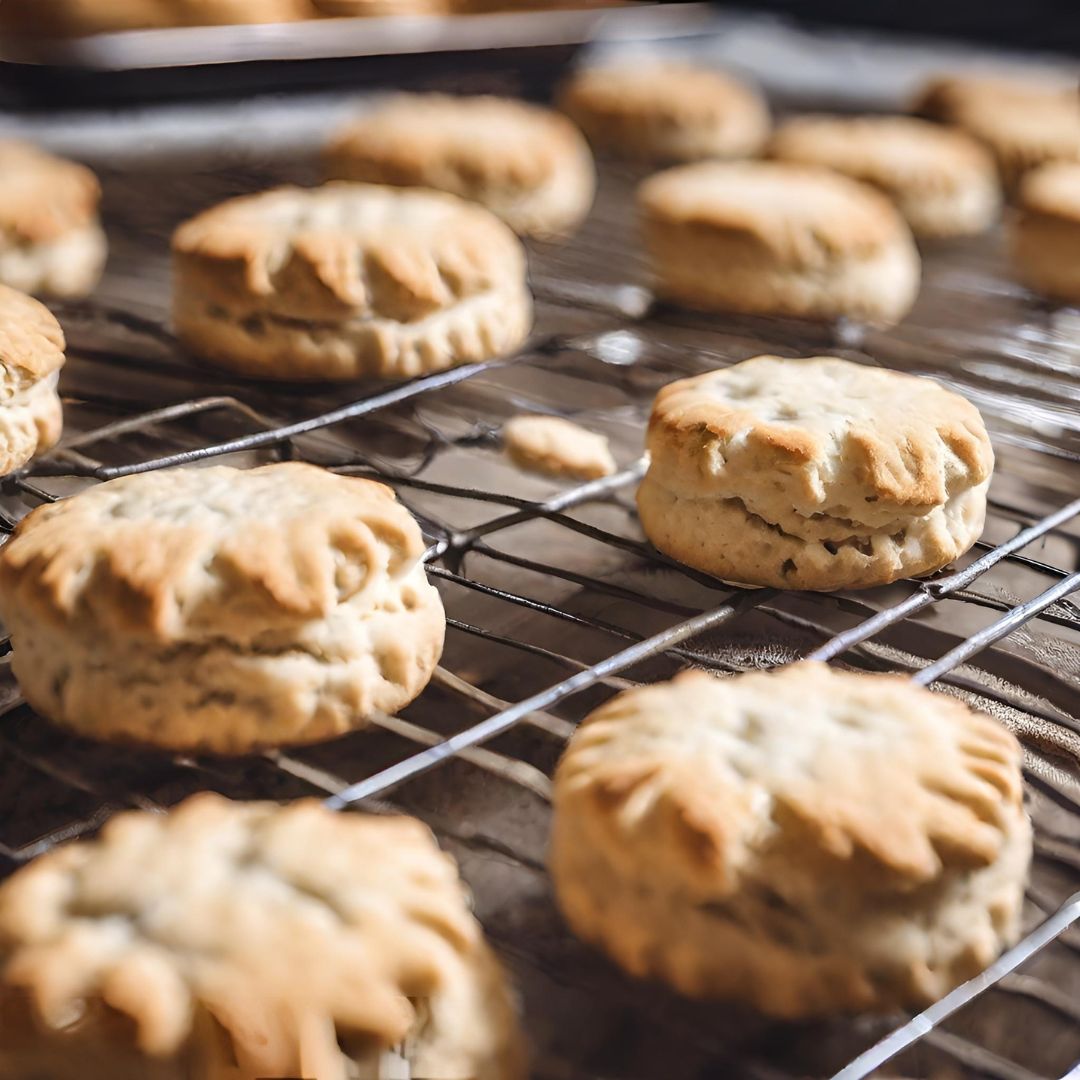Ah, biscuits. Those fluffy, golden wonders that pair perfectly with gravy, jam, or simply enjoyed on their own. But what happens when your biscuits turn out dry and crumbly instead of soft and flaky? Fear not, fellow bakers! We’re here to answer your burning question: why are my biscuits dry after baking?
The Importance of Baking Blissful Biscuits
Biscuits are a staple in many homes, offering a comforting and versatile treat. They’re perfect for breakfast, brunch, or even as a satisfying snack. But dry biscuits can be a disappointment, leaving you less than satisfied. Understanding what contributes to dryness can help you bake perfect biscuits every time.
Top Culprits Behind Dry Biscuits
Several factors can contribute to dry biscuits. Let’s explore the most common culprits:
1. Ingredient Ratios:
- Too much flour: This is a common culprit. Adding too much flour can absorb moisture, leaving your biscuits dry and dense. Stick to the recipe’s flour measurement and avoid adding extra flour unless the dough feels excessively sticky.
- Not enough fat: Fat plays a crucial role in creating a moist and tender crumb. Butter, shortening, or lard contribute to a flaky texture. Make sure you’re using the correct amount of fat as per the recipe.
2. Baking Time:
- Overbaking: Biscuits bake quickly, and overbaking them can lead to dryness. Keep a close eye on your biscuits and remove them from the oven once they’re golden brown and slightly firm to the touch.
- Underbaking: While overbaking is a concern, underbaking can also result in dry biscuits. Make sure the biscuits are cooked through before removing them from the oven.
3. Mixing Techniques:
- Overmixing: Overmixing the dough develops gluten, which can lead to tough and dry biscuits. Mix the ingredients just until combined, and avoid overworking the dough.
- Not mixing enough: Conversely, not mixing enough can result in unevenly distributed ingredients and pockets of dry flour. Mix the dough until the dry ingredients are just incorporated, but avoid overdoing it.
4. Other Factors:
- Type of flour: Different types of flour have varying protein contents. Using high-protein flour, such as bread flour, can result in tougher biscuits. Consider using pastry flour or self-rising flour for softer and flakier results.
- Dry ingredients: Expired baking powder or baking soda can also contribute to dry biscuits. Ensure your leavening agents are fresh and active for optimal rise and texture.
Tips for Baking Perfect Biscuits
Now that we know the culprits, here are some tips for baking perfectly moist and fluffy biscuits:
- Measure your ingredients accurately. Use measuring cups and spoons for dry ingredients and a liquid measuring cup for wet ingredients.
- Cut the butter into the dry ingredients thoroughly. This creates pockets of fat that contribute to flakiness. Use a pastry cutter or your fingertips to achieve the desired consistency.
- Don’t overwork the dough. Mix just until the ingredients are combined. Overworking can develop gluten and lead to tough biscuits.
- Bake until golden brown and just firm to the touch. Baking times may vary depending on your oven, so keep an eye on your biscuits.
- Brush with melted butter immediately after baking. This helps to lock in moisture and create a delicious glaze.
Frequently Asked Questions
1. Can I fix dry biscuits?
Unfortunately, there’s no magic fix for dry biscuits once they’re baked. However, you can try splitting them open and adding butter or honey for a bit of moisture.
2. How can I prevent biscuits from drying out?
Follow the tips above for optimal moisture and texture. Additionally, consider storing leftover biscuits in an airtight container to help retain their freshness.
Write also :
3. How long do biscuits stay fresh?
Freshly baked biscuits can last for up to 2 days at room temperature in an airtight container. For longer storage, freeze them in an airtight container for up to 3 months.
4. What can I do with leftover biscuits?
Don’t let dry biscuits go to waste! You can crumble them and use them as a topping for desserts or salads, or turn them into bread crumbs for pan-frying chicken or fish.
5. What are some good biscuit recipes?
There are countless delicious biscuit recipes online. Here are a few resources to get you started:
- Allrecipes: https://www.allrecipes.com/recipes/1998/bread/quick-bread/biscuits/
- Sally’s Baking Addiction: https://bakerbettie.com/5-ingredient-basic-drop-biscuits/
- King Arthur Baking: https://www.kingarthurbaking.com/recipes/collections/biscuit-recipes
Conclusion
Baking perfect biscuits requires a delicate balance of ingredients, mixing techniques, and baking time. By understanding the culprits behind dry biscuits and following the tips we’ve provided, you can confidently bake moist, fluffy, and delicious biscuits every time. Now, go forth and bake with confidence!
Ready to put your newfound knowledge to the test? Head over to your kitchen and whip up a batch of delicious biscuits! Share your baking adventures and success stories in the comments below.

